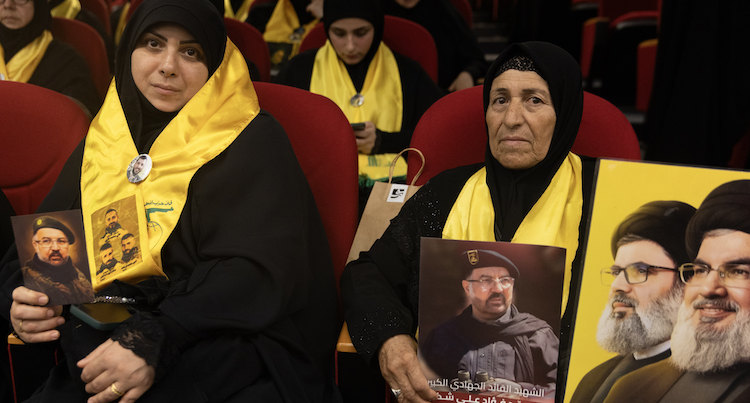Hezbollah has no reason to exist, and perhaps soon it won’t. Inshallah.
The Iranian terror proxy is the weakest it’s ever been, and the U.S. is very wisely pushing for its disarmament before that changes. Hezbollah is resisting full disarmament, of course, and how the West deals with this situation is important: Do we leave deathbed terror insurgents to fester or do we try to mop them up?
The war that Yahya Sinwar launched on Oct. 7, 2023, has resulted in the flattening of Hamas and Hezbollah, the defeat and exile of the Assad regime in Syria, and the housebreaking of Iran, the sponsor of all three. The cease-fire agreement in Lebanon trades Israeli redeployment for Hezbollah’s clearing of South Lebanon and laying down its guns and rockets. With Hezbollah dragging its feet and the Lebanese state needing to get its financial house in order, the Trump administration is getting impatient.
In theory, there should be no opposition to this at all. After all, the West is very concerned with decolonization, and the Lebanese state deserves to be rid of its Persian donut hole. In fact, the New York Times’ description of Hezbollah’s role in Lebanon highlights how absurd it was to have ever tolerated this state of play at all.
The Times explains that over the past four decades, Hezbollah “became the most powerful military force in Lebanon — stronger even than the state army.” That wording is helpful, because it reminds readers that Hezbollah isn’t the state army. A state whose army is weaker than a foreign state’s client army on its own soil is not a free state. It is an occupied state.
Now that that’s all been made clear, we can understand the fundamental question we’re asking here: Should Iran stop occupying the Lebanese sovereign state? Seems pretty simple to me.
Moving on: The Lebanese army has cleared about 90 percent of Hezbollah’s weapons from the south, while the United Nations Interim Force in Lebanon (UNIFIL) looks on.
You know who hasn’t removed Hezbollah’s weapons from the south, or even made a token effort to prevent the weapons buildup in the first place? Right, UNIFIL. So peace in Lebanon is possible, but it requires the work of the U.S., Lebanese army, and Israel. The UN and Hezbollah can both pack up and be roomies somewhere else.
The Times reports: “The Lebanese Army is gradually raising the number of troops in the south. Once the military there is up to full strength, President Aoun said, an armed Hezbollah will be unnecessary.”
That’s putting it generously, although we can understand why President Aoun is careful and diplomatic with his words. It was never “necessary” for there to be an Iranian satrapy in South Lebanon. But yes, even by the region’s default anti-Israel stance, there is no justification anymore for Hezbollah’s gun-toting thugs roaming the border.
Last, and crucially, we are reminded that Hezbollah not only isn’t a boon for the state but is bleeding it dry: “The Lebanese government must defang the group to secure Western funds without provoking an internal conflict. Hezbollah has long been under Western sanctions due its designation as a terrorist organization.”
Now would be as good a time as any to do so, especially since morale within and around Hezbollah is at low tide. A Hezbollah fighter’s father-in-law tells the Times that all he has to show for Hezbollah’s “resistance” is a hole in the ground that used to be his house. “They promised us a victory, but instead they destroyed our villages, destroyed our houses,” he said.
Western powers have been hesitant to deliver knockout punches to dwindling terrorist groups and other nonstate actors. But they now face that opportunity in two places: Gaza and Lebanon. Allowing remnants of terrorist armies with lots of Arab, Israeli, and American blood on their hands to stew in their own Petrie dishes of resentment is a fool’s play. When the chance to disarm them appears, take it. Where terrorism is concerned, victory is the only path to peace.


















